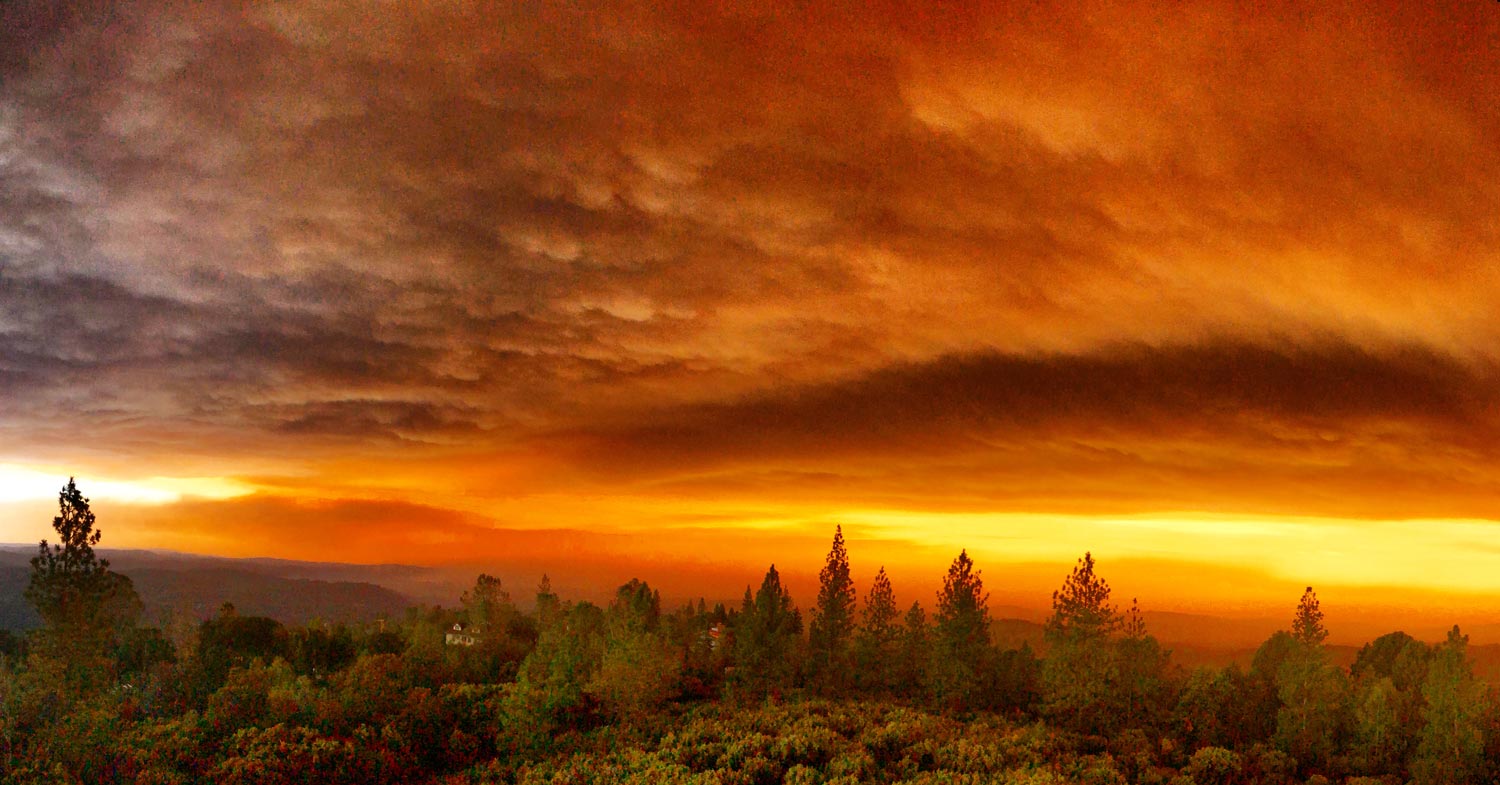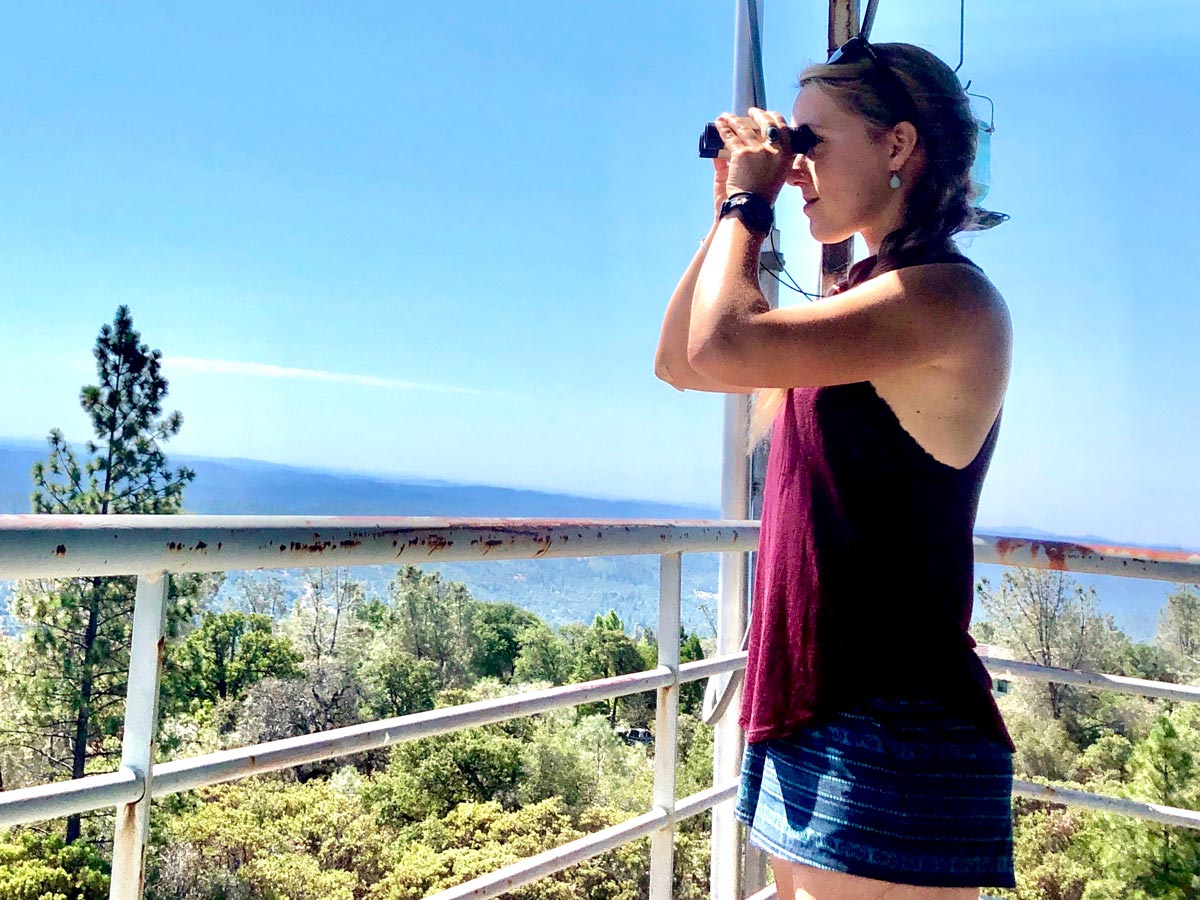
It’s a piece of advice often given to fiction writers to help ensure that their stories have power and authenticity. This summer, Charlotte Gross ’21G, a master’s student in UNH’s graduate writing program, took that advice a little more literally than perhaps she had expected to when she found herself on the frontlines of one of the most catastrophic fire seasons in U.S. history.
Back in the spring, Gross had proposed spending the summer working in California fire towers as research for her graduate thesis, a collection of short stories about women in the outdoors. Her proposal earned her a Summer Teaching Assistant Fellowship (STAF) and four months and counting in California’s Sierra Foothills, where she is working as a lookout in three different fire towers. She was 60 feet up in the air in the Banner Mt. Lookout outside Grass Valley when she got an up-close-and-personal view of the Jones Fire. That fire, which began with a lightning strike and burned some 700 acres of land between Aug. 17 and 27, is one of more than 100 that have erupted in California, Oregon and Washington since late July, covering more than 6.6 million acres and destroying more than 7,500 buildings.

“I think that to really be able to write about fire towers, which have such a particular culture and language, I need to do this work myself,” Gross says. “If you’re going to be writing from the real, you should be doing what you can to live in it to some degree.” She says that witnessing the Jones fire, watching the smoke that “billows up thick and white, then a bruised purple-brown” and the “tongues of flame [that] lick above the ridgelines, vermillion against dark trees” was a helpless feeling. “There’s not much a lookout can do once a fire is burning.”